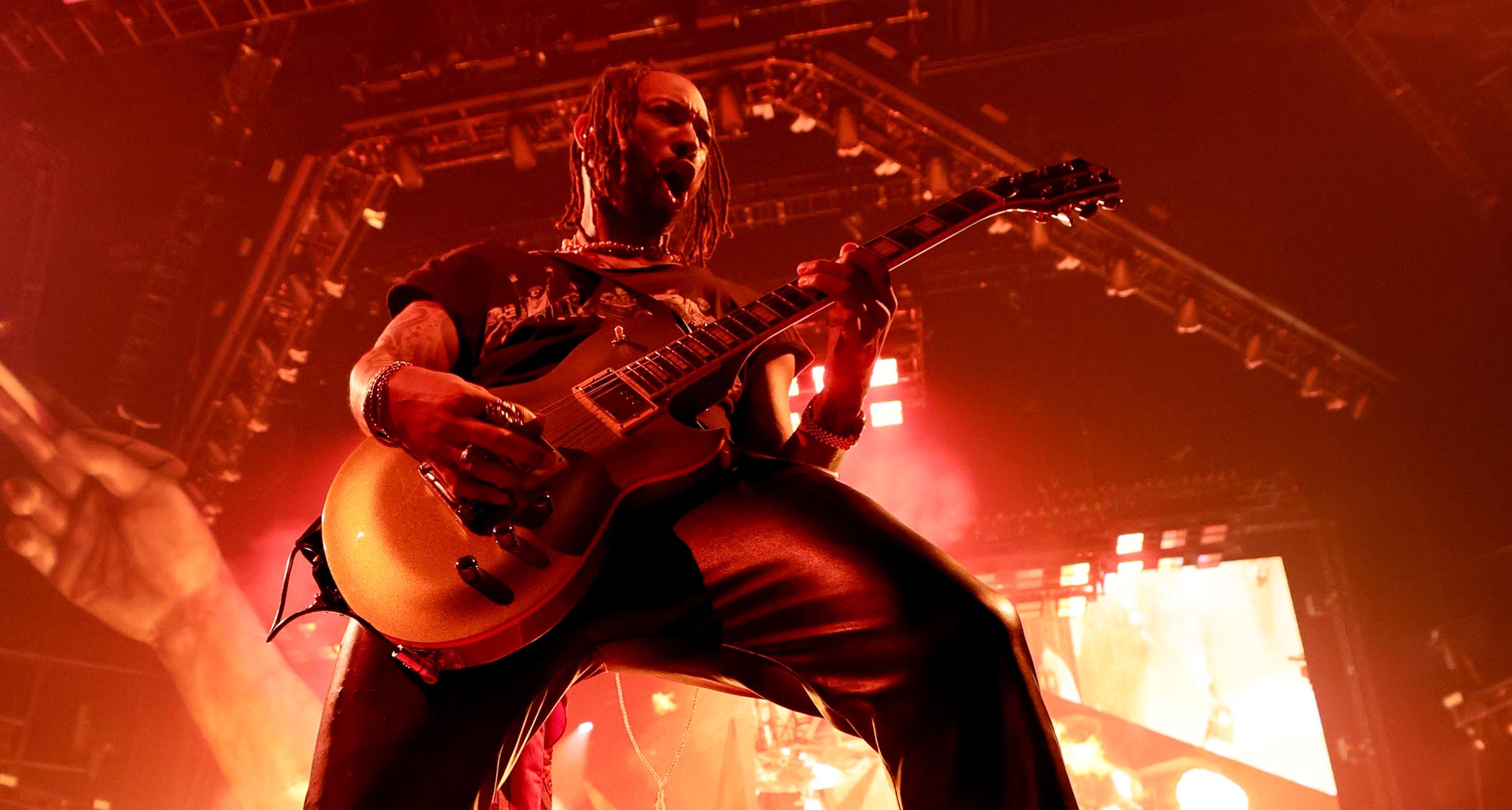Phil Sgrosso: "When you listen to enough Pantera, it's hard to not want to just have fun dive-bombing here and there"
The As I Lay Dying guitarist reveals how Iron Maiden, and his use of the Fender Jim Root Stratocaster during a brief tenure in Slipknot, led to his own shred-friendly signature Charvel
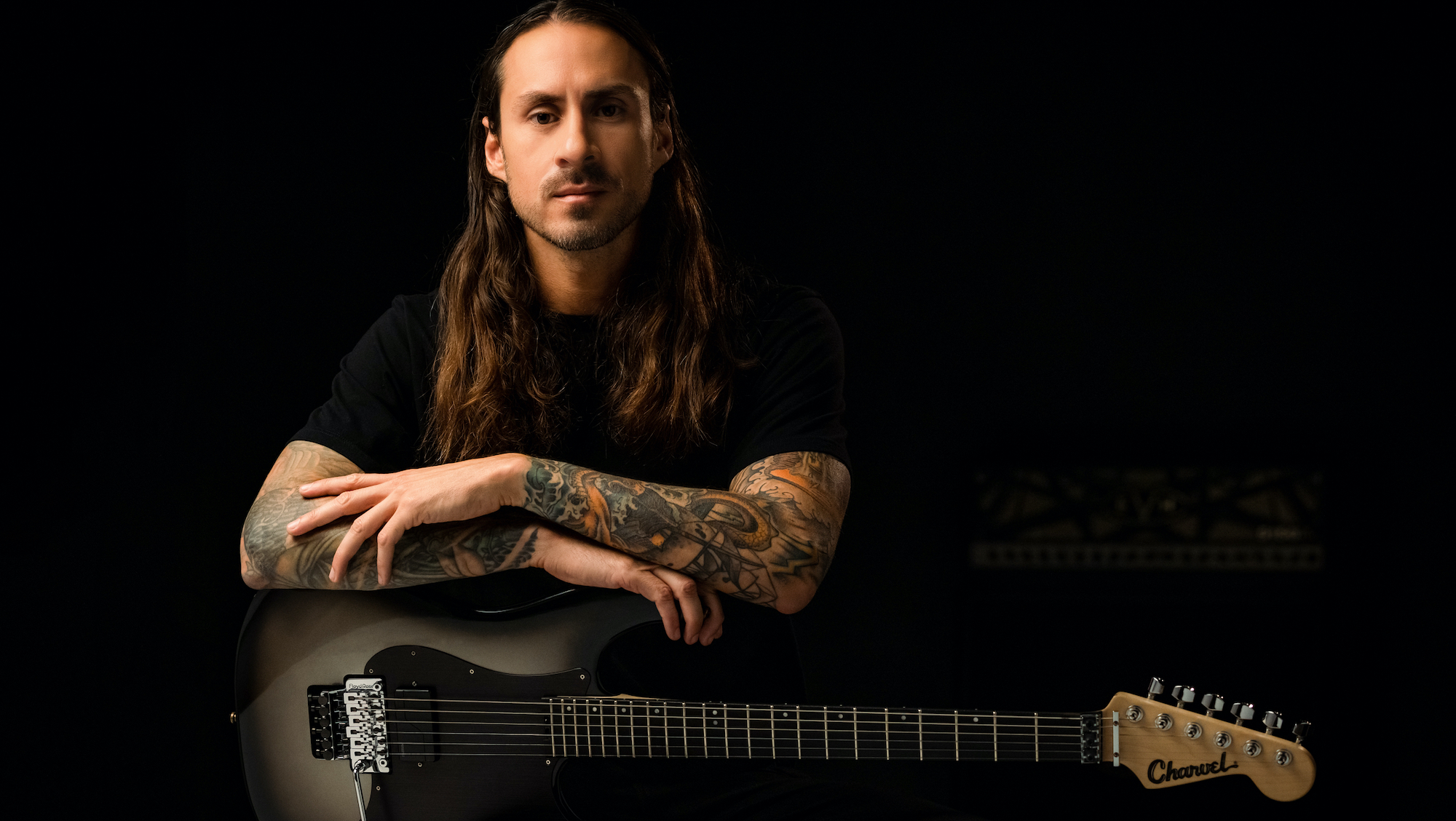
All the latest guitar news, interviews, lessons, reviews, deals and more, direct to your inbox!
You are now subscribed
Your newsletter sign-up was successful
It all started with Iron Maiden.
From harmonized electric guitar leads to horror-inspired aesthetics, the British metal icons have influenced a lot of things in the heavy music world over the last four decades.
In Phil Sgrosso’s case, it was his early love of Maiden that ultimately put him on the path to his signature model, the Charvel Phil Sgrosso Signature Pro-Mod So-Cal Style 1 H FR E.
“I guess we can go right back to when I was a little kid and I just fell in love with the Strat body style,” he explains.
“Very early on I fell in love with Iron Maiden, and that hot-rotted Strat kind of sound and feel and look was just something that I've always gravitated towards.”
And if you’re after a hot-rodded Strat, there are few better places to go to than Charvel.
The California-based manufacturer has long set the standard for high-performance Strat-style instruments, and is synonymous with leagues of top-tier rock and metal players, among them Eddie Van Halen and Slipknot’s Jim Root.
All the latest guitar news, interviews, lessons, reviews, deals and more, direct to your inbox!
You can now officially add Phil Sgrosso to that list.
Graced with a Silverburst finish, single pickup and a single volume knob, the Phil Sgrosso Signature Pro-Mod So-Cal Style 1 H FR E is a no-nonsense beast that’s clearly built for speed.
Thanks to its deep cutaways, which grant easy access to the high-end frets, and its compound radius fretboard, it’s perfect for the devilishly fast riffage and soloing Sgrosso has built his name on over the last 20 years.
It all comes alive with an active Fishman Fluence Modern PRF-MHB-AB1 bridge humbucker, equipped with switchable voicings that are controlled by a push/pull setting on the single volume knob – the perfect addition for a player like Sgrosso, who frequently flips between lead and rhythm settings.
Although the As I Lay Dying guitarist and principal songwriter has long had a relationship with Charvel, this is his first official signature guitar. We sat down with him to get the skinny on the brand-new Phil Sgrosso Signature Pro-Mod So-Cal Style 1 H FR E.
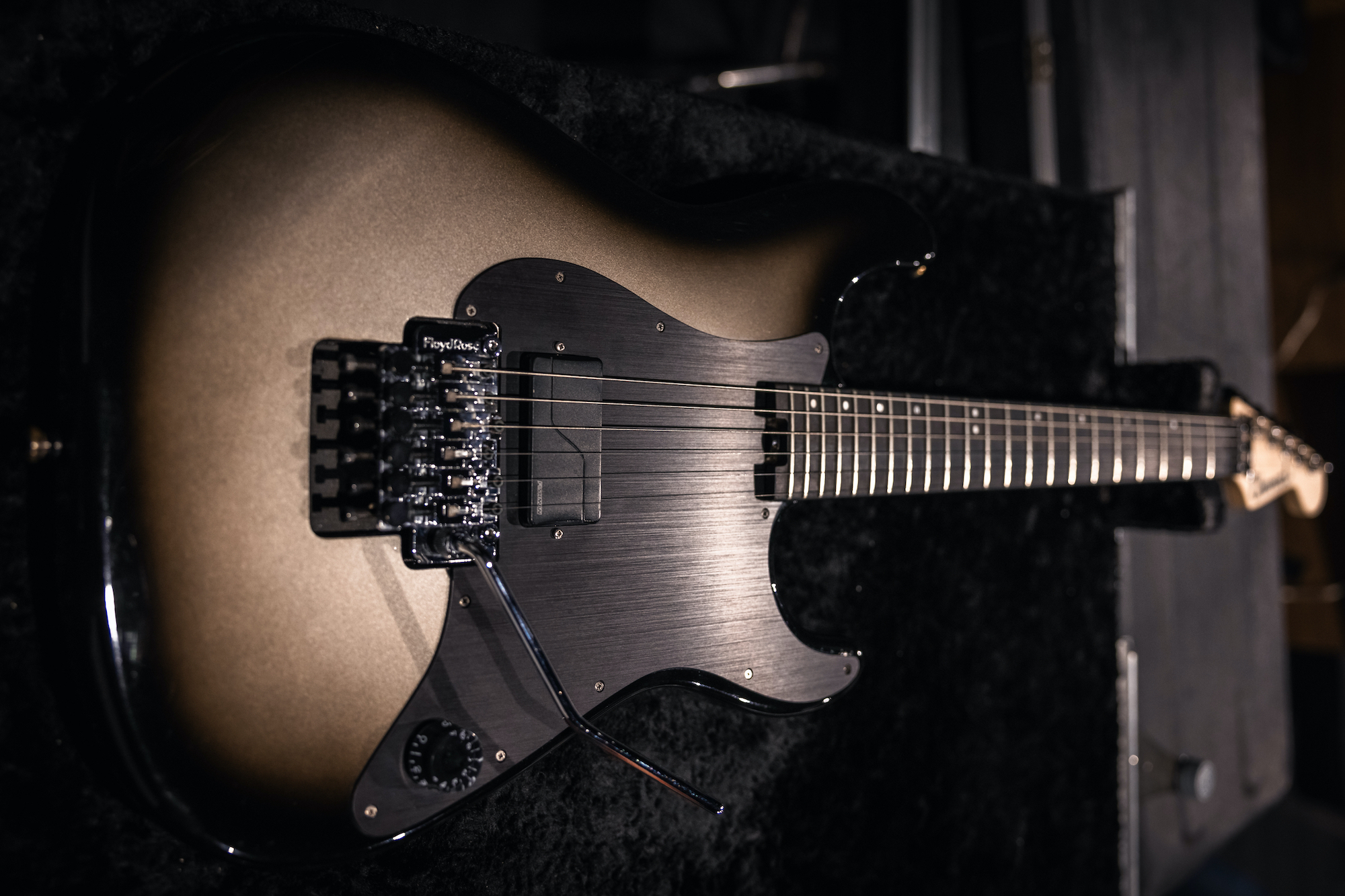
Can you tell me a bit about how this signature has come to be, and what exactly it is about Charvels for you?
"I guess the best place to start is the beginning of my relationship with Charvel, which started back in 2012.
"I was looking to change things up guitar-wise, and got my hands on the Jim Root signature Stratocaster while I was filling in for him with Slipknot on the Mayhem [Festival] tour in 2012. And I mentioned [it] to my rep at Fender, I was like, 'Man, this guitar feels great! I would love to have something like this'. And he said 'Well, you should check out the Charvels that Jim's guitars are kind of modeled after.' So he sent me some of their models and I got a couple of customs made more to my spec, and I have been playing with them ever since.
"So when the opportunity came along to do a signature, I kind of wanted to add a few different bells and whistles to it to kind of modify it, and upgrade [it] to more of something that I'm looking for today."
Which areas were you looking at to specifically suit your playing?
"Because my playing has gravitated more towards soloing and [more technical] stuff, the neck is definitely a thinner profile, so it just feels a lot easier moving around. And it has the shredder's cut heel, which makes getting access to the higher frets a little more convenient.
"You can get all the way up to the highest fret that you can without hitting the blocks of the neck or hitting the cutaway, so it's definitely suited more towards advanced playing, I would say."
You’re involved with a few different projects (including Saosin, Apathian and Nails) and bring a different flavor to each, does this serve as an all-purpose axe for you?
"Yes, I'll be using it for as many as I can, definitely. Most of my time is spent with As I Lay Dying, so I was fortunate enough to get the first model in my hands for the past two tours over the summer. So it's kind of the maiden voyage with trying this guitar out, and it felt really comfortable live.
"It's just a guitar that, when I see any pictures or videos, I'm like, yeah, this feels like a guitar that represents who I am and my style as a player."
On that note, one important thing to mention is that it just looks sick. It’s got a real industrial vibe to it.
"Thanks! Yeah, I guess that's a good way to put it. Actually, one of the features that ties into the looks department is the anodized aluminium pickguard.
"Sometimes, when I'm playing live I’m really just digging into it and I start scratching the hell out of my pickguard. So I asked for something a little more scratch-resistant, and that's when Peter [Wichers, a Product Manager for Charvel] recommended the anodized aluminium pickguard. It's much more durable and resilient, and it kind of adds this sort of modern sleekness to it."
It’s a very simple guitar in terms of layout – single volume knob, single pickup – why was it important to strip things back a bit?
"I never really like things around that aren't useful to me. I like everything to serve a purpose, otherwise, it’s just something in the way – this is just my philosophy of life in general. I was always more rhythm-based, especially in the early stages of my playing, so I’ve just never really had the need for a neck pickup. The bridge pickup is the main thing that I rely on, so we figured we could simply just do that.
"With heavy metal – or my style of playing anyway – rolling off the tone isn't really something that's needed. So I was like, 'Alright, less is more! Let’s keep it minimal and only to what is needed for this style.'
"That's kind of why it's just the one humbucker, one volume knob, but there is also a push and pull to change voicings in the Fishman pickup. So you have two options for how you want to shape your sound."
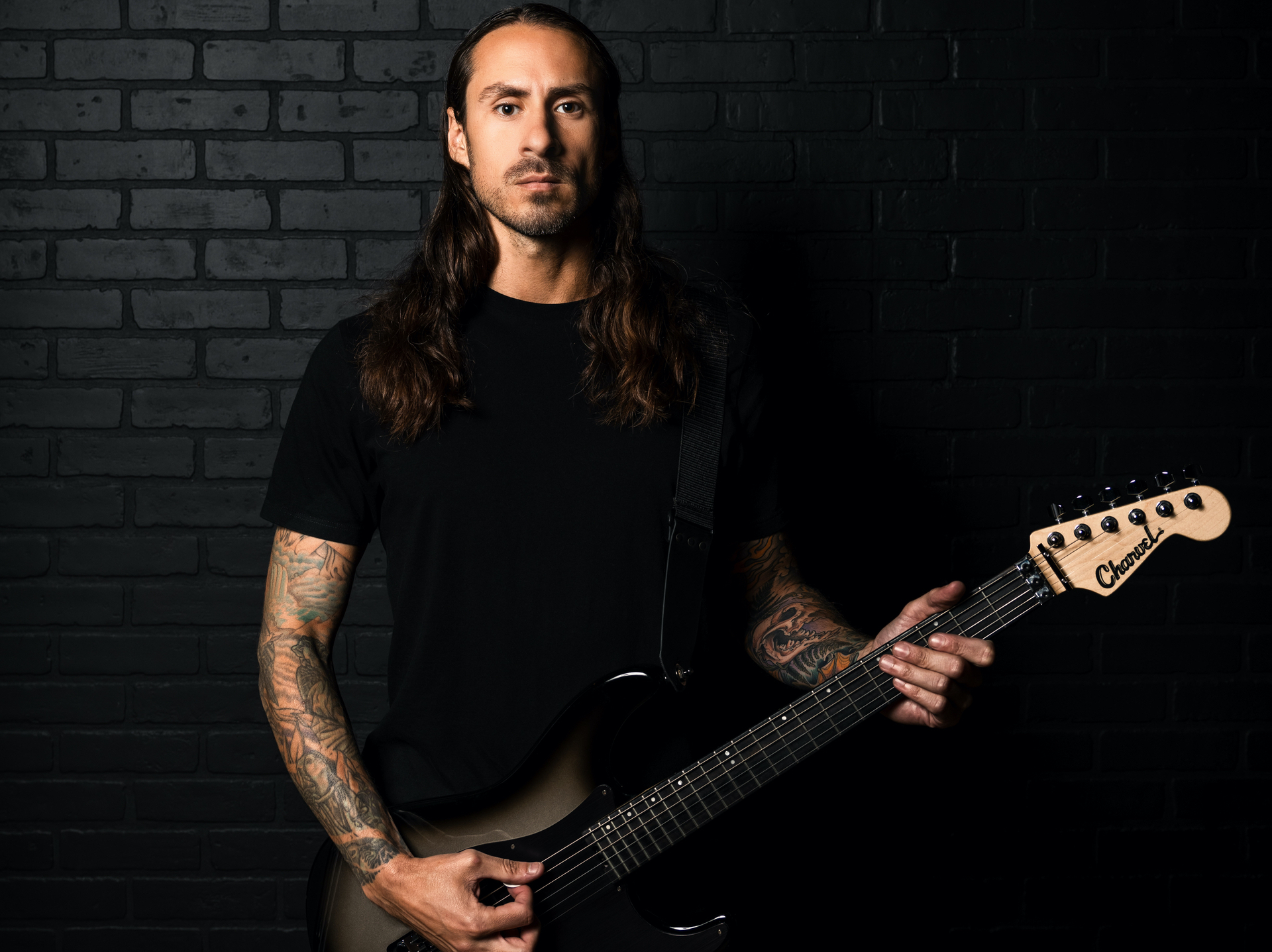
The push/pull system to switch between the two voicings must be something of a masterstroke for this. It must give you just that extra bit of versatility.
"Yeah, definitely. Especially when you're recording. You can play your rhythms on one voicing and then play your leads on the second voicing and it just gives a little more separation between the [tone] of the two parts. At times I think I like this second voicing better, but then I just kind of go back and forth; it’s good to have them both."
In terms of hardware, there’s the obvious Floyd Rose system, which seems like an essential for you, right?
"Definitely. As my playing has evolved to become more lead- and solo-based, I've decided that a Floyd Rose is just the most appropriate place you can take it.
"There are just a number of more options and sounds that you can make having a Floyd. And I know that's probably the most complex part of the guitar – Floyds can definitely be tricky, but it's a new feature for me that definitely creates more possibilities."
It’s somewhat surprising to hear that Floyds are a bit of a new thing for you – you could teach a masterclass on dive bombing!
"Yeah, I mean, I'm definitely having a lot more fun live throwing in dive bombs wherever I can. When you listen to enough Pantera, it's hard to not want to just have fun dive-bombing here and there. But there’s definitely a lot of other uses for a Floyd Rose too, and having an arsenal to create new sounds is important in both writing and performing. So the Floyd is definitely an upgrade that I've been really enjoying having."
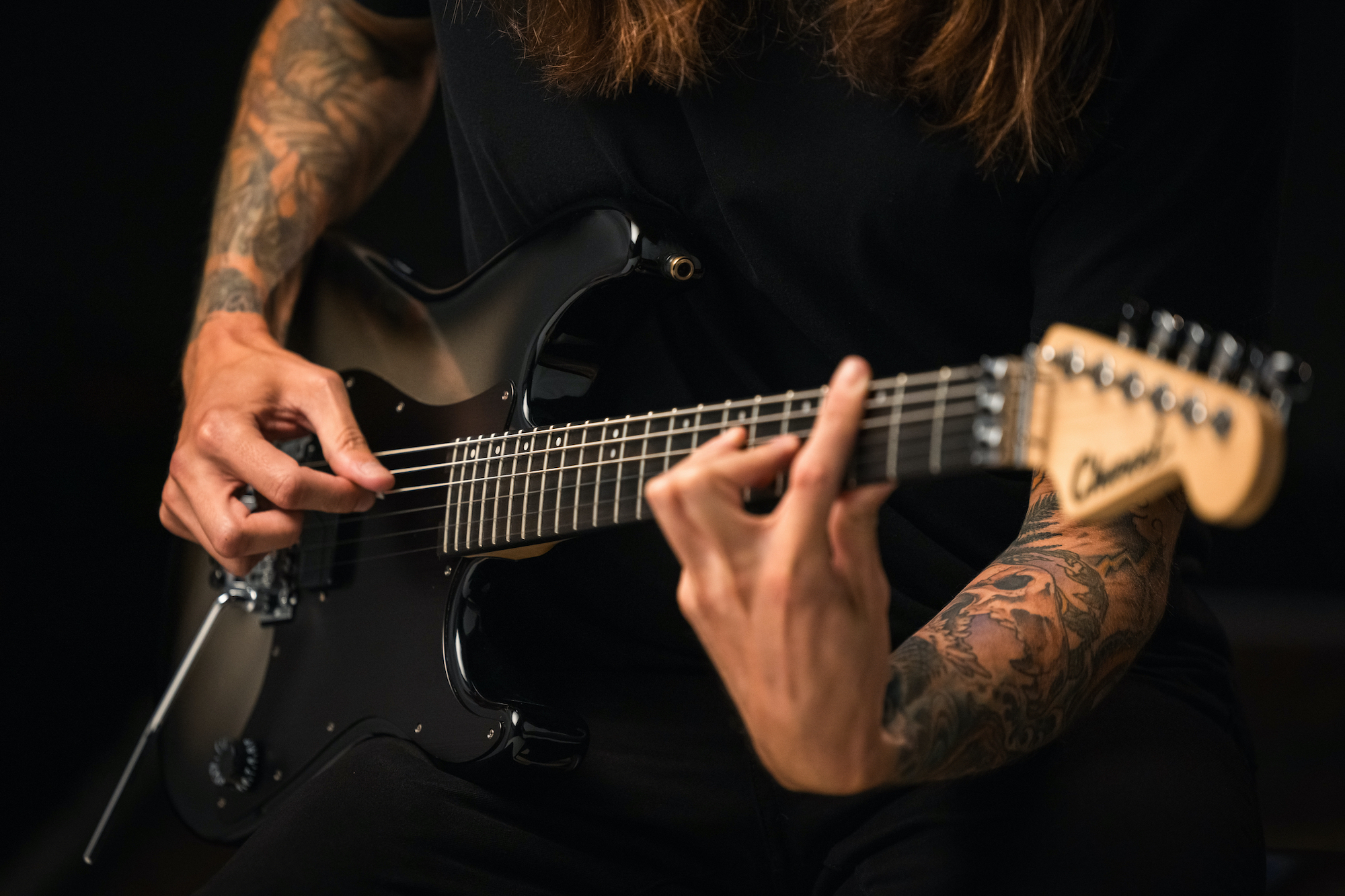
We’ve spoken a little bit about how your playing style has evolved over the years, what do you think has driven that? Some players can more or less sound the same for their whole career but that’s not the case with you.
"I sort of have a balance. There's a lot of music that I listen to that's very simple – not advanced playing. I mean, David Gilmour is my favorite guitar player ever, and there's no speed in his playing – it's all style!
"[He uses] A lot of long, sustained notes, and I always feel something from that. But then I can reference Eddie Van Halen or Dimebag Darrell, two of my other favorite guitar players, and there's a lot of speed to it, but there's also a lot of cleverness and nuance to it as well; incorporating a lot of tapping, hammer-ons, pull-off, legato – a number of other things that make it sound complex and interesting. I still get inspired by a lot of that and bring that into my playing.
"But, I think as the metal genre pushes into new territories, there's definitely a lot of speed that comes with it. As I Lay Dying have been around for 20 years now, and a lot of people would expect bands as they get older to slow down. But part of my approach is that we don't slow down. Keeping that speed and aggression is sort of what keeps us feeling young."
- The Charvel Phil Sgrosso Signature Pro-Mod So-Cal Style 1 H FR E is available now.
Chris is a contributor to Guitar World and MusicRadar with around 20 years of guitar playing experience – including writing for and recording various projects for around 15 of those. Outside of practical experience, he’s studied music throughout his life, with a particular focus on composition at university. He’s something of a 90s tragic and a sucker for anything with a groovy, metallic edge or psych and stoner vibes. Outside of music, he’s an avid cook, gardener, and rugby league lover.



